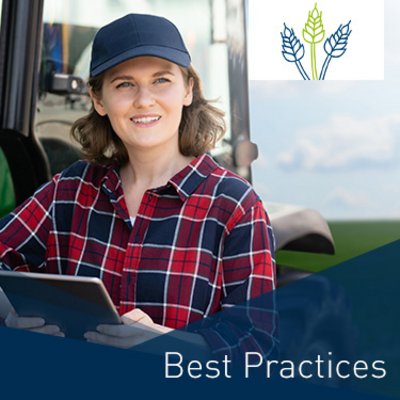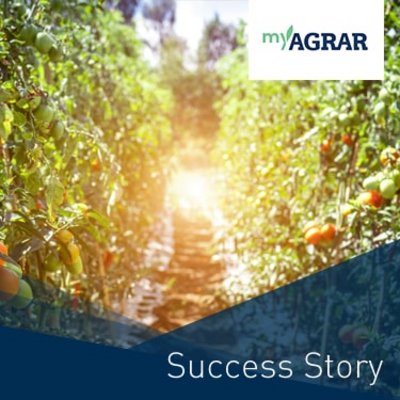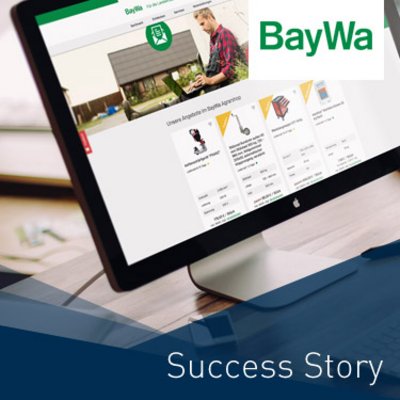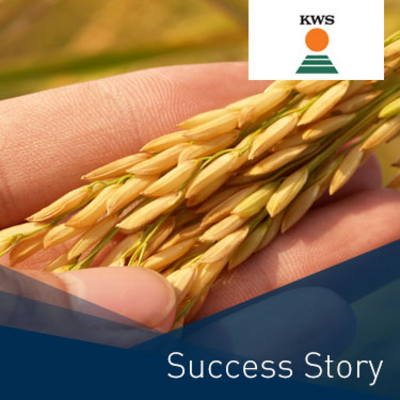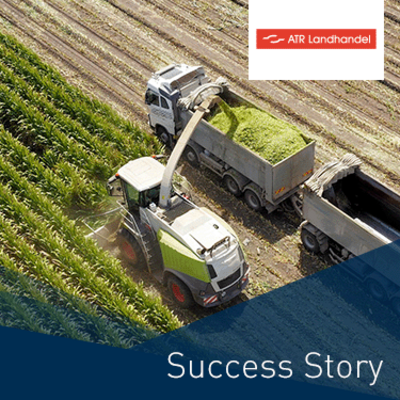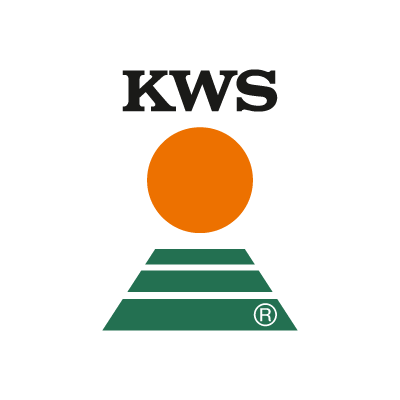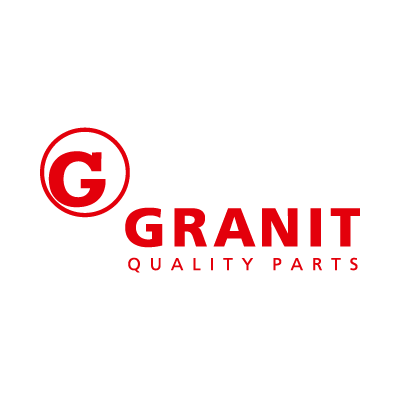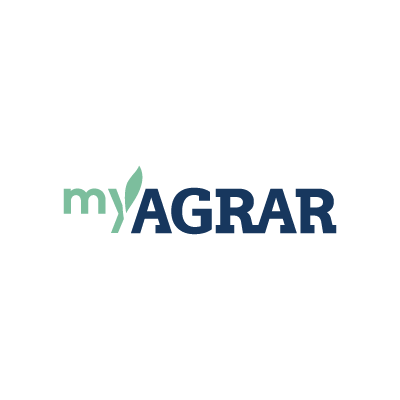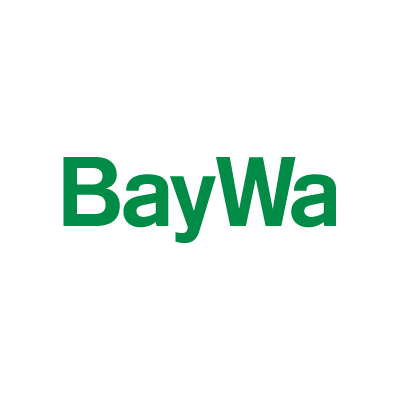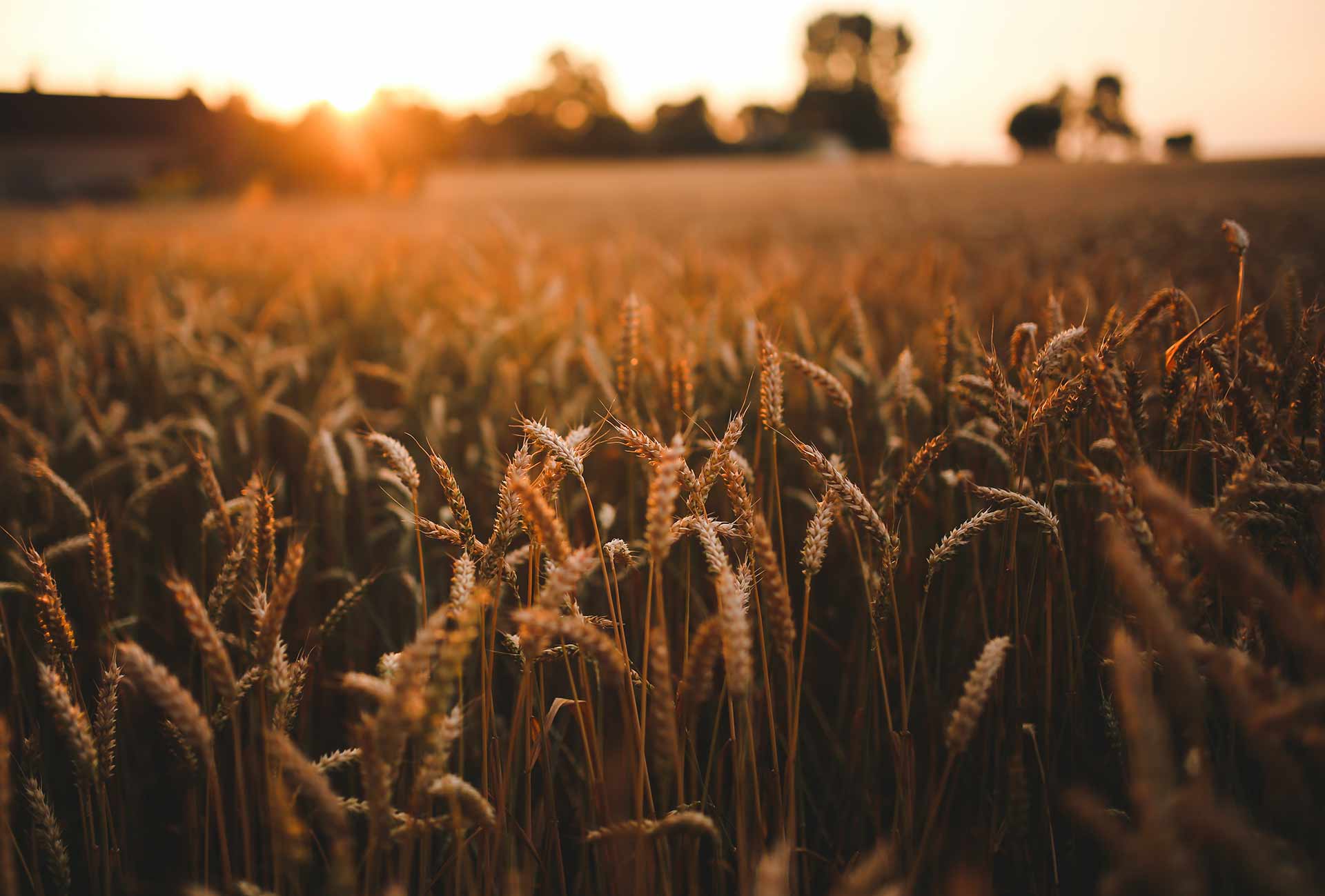
Agriculture as a Pioneer of Digital Transformation
Not only is agriculture one of the oldest and most important production and trade sectors, but it is also one of the industries that has been subject to permanent structural change over the last 70 years like hardly any other – and still is.
Digitalisation offers you the opportunity to turn traditional analogue virtues into even more effective digital concepts and processes. On the one hand, you are faced with the challenge of digitalising your sales and service processes. On the other hand, you have to deal with large amounts of data, making sure it is stored securely and put to profitable use.
Companies such as BayWa, myAGRAR, ATR Landhandel and KWS are already harnessing this potential and developing new, future-proof business models. You can learn more about challenges and solutions in the agricultural industry in our »Digitalisation in Agriculture Best Practices« publication.
Download the publication for free now
Digitalisation in Agriculture: Challenges and Solutions
How Can You Cater to the Specific Requirements Placed on Your E-Commerce Platform?
Your e-commerce platform must meet not only the needs of your customers, but also the unique requirements of the agricultural industry.
Benefit, for example, from an e-commerce system that provides you with extensive rights and role concepts. This is particularly advantageous if farmers, traders and other supply chain players require different authorisations. As a large company with several subsidiaries or brands, you also need a multi-client platform that can accommodate complex system landscapes in affiliated groups.
Another key feature is the integration of Internet of Things (IoT) devices, for example to check current stock levels and automatically retrieve new deliveries. With the help of iPaaS and API management, you can integrate your system landscape components via efficient, reusable interfaces and enable seamless data exchange.
Read our success stories to find out how myAGRAR, ATR Landhandel and BayWa are already benefitting from bespoke e-commerce platforms.
How Can You Digitalise and Automate Marketing, Sales und Service Processes?
The majority of farmers in Germany regularly use messengers such as WhatsApp in their everyday lives. This opens up direct communication channels that allow you to reach your target audience. Today's customers expect fast, personalised product information via modern channels such as live chats and chatbots, which can also be used to provide professional advice and excellent customer service.
It is crucial to integrate a customer relationship management (CRM) system that analyses customer data and thus automates and optimises your sales processes. Furthermore, marketing automation tools make it possible to use your data for targeted marketing campaigns, enabling you to address customers in a personalised way, strengthen customer loyalty and boost conversion rates.
We support you in expanding your digital service channels, identifying channels that are relevant to your customers and using CRM, service and marketing automation solutions effectively.
Find out in our »myAGRAR« success story how the company uses a sophisticated CRM system and a marketing automation tool to take the customer experience to the next level.
How Can You Bring the Shopping Experience to the Field?
Farmers prefer to be out in their fields, which means that the shopping experience must take place there too. 3G optimisation is very important in this context. This may come as a surprise at a time when we are mainly talking about expanding 5G coverage. However, many farmers still access digital content from regions where mobile internet reception leaves much to be desired.
For this reason, it is particularly important that you optimise your e-commerce solution for slow data connections, e.g. 3G or EDGE, to ensure the best possible experience – even in remote rural regions.
In our »BayWa« success story, we explain how the company optimised its e-commerce platform and seamlessly integrated it with its brick-and-mortar stores, taking into account the poor mobile coverage in rural areas.
How Can You Benefit from Smart Farming and Collected Data?
Whether it is high-tech agricultural machinery, robotics solutions or drones – digital technologies are an integral part of agriculture these days. They generate vast amounts of data, which – if analysed properly – can take your daily work to the next level. Use data-driven insights to optimise your processes, save resources and reduce costs. Artificial intelligence (AI) and process automation enable you to proactively simulate scenarios, making you more resilient to crises and allowing you to respond to problems at an earlier stage.
Work with our team of data experts to develop a data strategy tailored to your specific challenges. A business intelligence (BI) software solution (e.g. Microsoft Power BI) ensures that you put your existing data to profitable use and make data-driven decisions while also complying with IT security policies.
Linking information, smart farming tools and visualised data to the corresponding offers in an online shop at any time and on any device? Check out our »KWS« success story to find out how this can be achieved using a BI tool.
How Can You Make Your IT Infrastructure Fit for the Future?
By using sensors, drones and other IoT devices, farmers can gather data on soil quality, weather conditions, plant growth and much more. This increasing level of digitalisation and the associated rise in the amount of data to be analysed result in a growing need for computing power and storage capacity.
With the help of cloud solutions, you can set up extremely flexible and scalable hardware and software environments that allow you to respond quickly to seasonal fluctuations and other changes in the agricultural industry. In addition, by leveraging cloud-based platforms and connecting your machines, you can use them more efficiently and minimise idle times.
Benefit from in-depth IT architecture consulting and develop a tailored cloud infrastructure together with our team.
Find out in our »myAGRAR« success story how the company benefits from maximum flexibility and scalability by hosting in the cloud.
How Can You Ensure the Security of Your Data?
If you want to make effective use of digital technologies going forward, it is essential to factor in cyber security. Not only can cyber attacks in the agricultural industry pose a threat to your sales, but they can also jeopardise the security of your operations.
Cloud solutions provide reliable storage capacity combined with a high level of encryption. Moreover, built-in AI tools can analyse behavioural patterns and identify anomalies to detect threats at an early stage and respond to them adequately. On-premises solutions, by contrast, allow you to process and store data in-house, significantly reducing the risk of failure.
In a consulting session, we help you evaluate which option meets your individual data security and storage requirements or whether a hybrid strategy makes sense. Using professional penetration tests, we can also check your IT systems for security vulnerabilities.
Read our »Cloud Services Best Practices« publication to find out how BayWa and myAGRAR set up an intelligent system architecture to ensure maximum data security.
Use Cases in the Agricultural Industry: The Success Stories in Detail
Other Agency Services at a Glance
FAQ – Frequently Asked Questions About Digitalisation in Agriculture
What does digitalisation in agriculture refer to?
Digitalisation in agriculture involves the use of modern digital technologies and tools such as robotics solutions, big data and AI to make agricultural processes more efficient, more sustainable and more productive. Furthermore, farmers increasingly leverage digital solutions to engage with customers in order to promote and sell their products.
How can the agricultural industry benefit from digitalision?
Digital technologies such as precision farming and smart farming optimise processes, increase efficiency and contribute to sustainability. Farmers can benefit from accurate data collection, automated processes and management tailored to their needs. This leads to higher productivity, resource conservation and enhanced animal welfare.
Moreover, digitalisation allows for new forms of customer interaction and sales. Farmers can get in touch with customers online, advertise their products and tap into new markets.
What challenges are associated with digitalision in agriculture?
The main challenges arise from the ever-increasing amount of data to be processed. Many farmers are extremely concerned about data sovereignty and data security. Cyber attacks and technical failures can also jeopardise operational security. We will be happy to evaluate which data strategy is right for your business.
Want to learn more? I'm looking forward to hearing from you!

